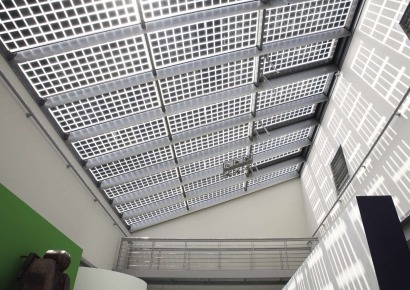
Until recently, aesthetic and performance concerns limited the ability of architects to use BIPV technology in their building designs, but this is changing as energy-efficient, flexible, and transparent solar materials become available. Under a more aggressive forecast scenario, the worldwide BIPV market could reach $3.7 billion in 2017, the study concludes.
“The emerging BIPV market, which straddles the building industry and the solar power industry, offers a new way to develop revenue streams for both parties,” says research director Kerry-Ann Adamson. “Solar suppliers have begun to partner with building and construction companies, as well as designers and architects, and have gained access to completely new markets. At the same time, building companies have started to recognize new opportunities in green buildings and in retrofitting existing homes and commercial facilities.”
While Western Europe will be the largest market for BIPV products, growth in the sector will be evenly distributed across Europe, North America, and Asia Pacific, according to the report. Notable new markets for BIPV that are likely to emerge through 2017 include Eastern Europe (Lithuania, Serbia, Slovenia, Poland, and Ukraine), Asia Pacific (especially Australia, China, India, Japan, Malaysia, and Thailand), Latin America (Brazil and Chile), and South Africa. While the solar industry has faced numerous challenges in the United States, the U.S. government is paying greater attention to BIPV, as shown by the Department of Energy’s approval of an additional $145 million in funding for the SunShot Initiative – and specifically BIPV development programs – in September 2011.
For additional information:

